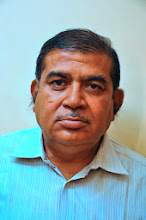In the trial of Suu Kyi, which has been going on for the last three months, the verdict, which had been delayed more than once for various reasons is out. On 11 August 2009 Suu Kyi has been sentenced to18 months house arrest. The court had actually sentenced her to three years in prison with hard labour. By a special order from the Head of the State, read out by the Home Minister in the court, her sentence was reduced to 18 months and that it could be served under house arrest.
The verdict was on expected lines but the quantum of 18 months was significant as it covers till the end of 2010, by which time the multi party elections would be over. Hence the obvious fact is to keep her under house arrest till the elections are over and the new government is in position.
It was in July 1989 that she was first placed in house arrest. In the last two decades she has spent about 14 years under house arrest. She was to be released in May this year (2009). A few days before her expected release this incident of an American, John Yettaw, swimming across the lake and sneaking into her residence happened In this trial Yettaw has been sentenced to three years in prison for breaching Ms Suu Kyi’s house arrest, three years for an immigration offence and another one year term with hard labour for swimming in a restricted zone.
This incident proved a blessing in disguise for the military junta for charging her on violation of state security laws, breaching the terms of her house arrest and for permitting a foreigner to gain entry to her house. She was arrested and taken to Insein prison. She denied all the charges leveled against her and said that she accommodated the foreigner on humanitarian grounds. The trial lasted for 86 days till the verdict was announced on 11 August 2009.
When the military junta is in full control of the situation, the constitution framed to suit its requirements and the opposition in disarray, why should Suu Kyi be kept away from the scene?
During 1990 elections, she was under arrest and was not allowed to contest. Despite this, the opposition swept the polls on her name and her charisma.
In 2002, she was released unconditionally and allowed to move around the country freely. Her popularity was surging and thousands of people gathered to meet her wherever she travelled. The junta was surprised at the public response and support and had to resort to some extraneous means to attack her convoy in May 2003 and put her under house arrest.
Her party, National League for Democracy keeps raising the bogey of accepting the people’s verdict in the 1990 polls (both internally and internationally), which the military junta has annulled. It is keen to have the 2010 elections completed in their favour without any hurdles so that the 1990 verdict can become part of the country’s history. In this regard her being inaccessible to the party and the public will be crucial.
From the views expressed by the diplomats who were allowed inside the court on a few occasions during this trial, she was seen to be calm, brave, serene and gave no indications of remorse on her part or bitterness towards the prosecution. The general feeling was that she will still play a major role and influence the political future of this country.
The Junta is still scared of the charisma, popularity and influence that Suu Kyi (if released) can exert on the masses even after this long period of detention and house arrest.
The Constitution has a specific clause which reads “The President of the Union himself, parents, spouse, children and their spouses shall not owe allegiance to a foreign power, shall not be subject of a foreign power or citizen of a foreign country. They shall not be persons entitled to the rights and privileges of a subject or citizen of a foreign country”. This is to preclude her from a political comeback even if she is free without amending the constitution as she was married to Michael Aris, an Englishman and a Tibetan scholar. He died in March 1999. She did not even go for his funeral to England, fearing that she would never be allowed to return..
There has been wide spread condemnation of this verdict from the international community. UK Prime Minister Gordon Brown said that it was “a purely political sentence”. The French President called upon the European Union to impose new sanctions. The EU presidency said it would impose “additional targeted measures against those responsible for the verdict”.
The military junta must be fully aware of the likely reactions on this verdict from the international community. With public memory being short lived, the pressure will ease as time passes and as long as China and Russia are on their side it can weather any storm raised in the international arena.
The military junta may also release some inconsequential political prisoners (out of the 2100 odd) in the near future, as indicated by the country’s ambassador to the UN, to placate the international community and to reduce the pressure.
Thus the military leadership will adhere to its road map to democracy, stage the multi party elections in 2010 and prop up a civilian government (without the NLD and Suu Kyi), that will be subservient to the junta’s interests. Than Shwe and the other senior generals can retire peacefully and be free from fear of any retribution and at the same time keep the military in a dominant position in the state for some years to come.
Thursday, August 13, 2009
Is Suu Kyi Guilty?
Posted by pandeyhariram at 3:03 AM
Subscribe to:
Post Comments (Atom)


0 comments:
Post a Comment